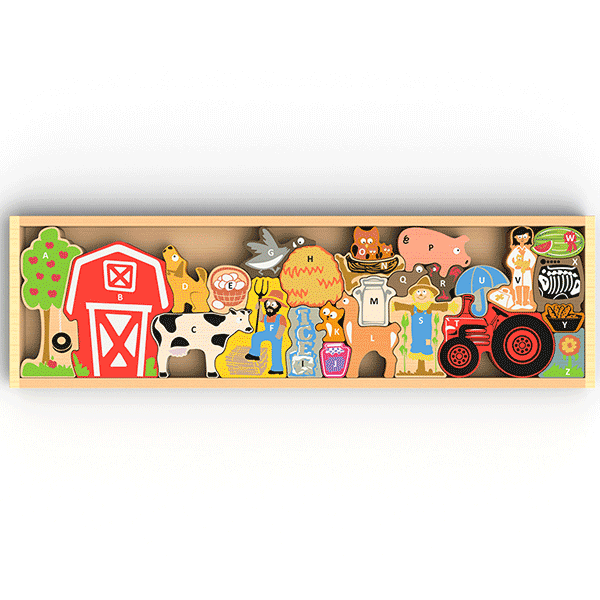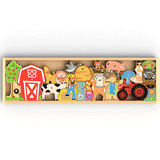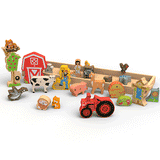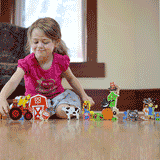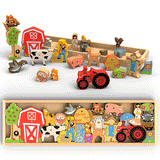Alphabet Farm Puzzle
Details
Hay! Ewe know ... Farmers are outstanding in their fields! This award-winning alphabet wooden farm puzzle supports alphabet learning and problem-solving. As an alphabet learning toy, the puzzle provides all things country — A for apple, C for cow, T for tractor and more. Upper-case letters are on each piece and lower-case letters on the other side.
The pieces are nearly an inch thick making it easy-breezy for little hands to clutch. The pieces also work as a farm play set. Children learn about the farm world through pretend play, imagination, and storytelling. What better way to learn what it takes to grow vegetables, fruits, animals, and grains. It comes with a beautiful tray in natural beechwood for storage or travel.
ECO-FRIENDLY MANUFACTURINGSIZE: 20" x 6" x 1"
AGE RANGE: 3-6 years
AWARDS: Scholastic Gold Star Award, 2016


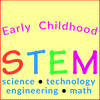
Developmental Value
Early reading skills begin with recognizing alphabet letters. Exposure to both upper and lower-case letters will create awareness. Over time, children will become aware of the alphabet order. Adults can guide learning by offering the alphabet sounds.
Puzzles are a problem-solving activity developing cross-brain thinking skills. Effective problem solving requires a mixture of both logic (left-brain activity) and creative (right-brain activity) thinking. Good problem solvers switch from one set of skills to the other. Cross-brain thinking is not always easy but becomes easier with problem-solving practice.
-
Logic (analytic) thinking develops through ordering the pieces, comparing them, contrasting them, evaluating them and selecting the correct piece. The child must select the best alternative from the options available by narrowing down the range of possibilities.
-
Creative thinking is developed when a piece doesn't fit because the child must consider a broader set of solving options such as manipulating the piece, flipping the piece, considering the alphabet order, or solving surrounding pieces.
Puzzle play requires visual spatial relationship reasoning, a cognitive skill requiring recognition of relationships between adjoining pieces. Spatial awareness is critical to fundamental mathematics comprehension.
Puzzles build attention span. They require concentration for completion. The key for the adult is finding the sweet spot of difficulty. If a puzzle is too easy, it requires little concentration. If it is too hard, the puzzle becomes a source of frustration. If it doesn't feel like play, the positive learning experience shuts down.
Puzzles become an opportunity for relationship building when adults provide encouragement and support.
The puzzle parts are large and chunky supporting the clutching and manipulating of pieces. This supports the development of fine motor skill.
As a farm play set, the animals, people, and farm equipment become parts of dramatic play, imagination, and storytelling.
Because there is a carrying tray, this puzzle becomes a travel toy for activities away from home. For homes who focus on Montessori shelving with work options, this puzzle sits orderly in its box.
Manufacturer
Located in Fort Collins, Colorado, BeginAgain believes in hands-on experiential toys, devoid of batteries. BeginAgain also has a strong commitment to eco-friendly products.
This durable wooden puzzle is handcrafted from sustainable plantation-grown trees. BeginAgain chooses to use rubberwood (hevea brasiliensis) because it grows quickly. As it is a strong hardwood, it is an excellent material for making heirloom quality toys.
The puzzle was designed in Fort Collins, Colorado. Manufacturing near the native source of the wood, allows for smarter, more efficient use of energy, reducing the shipping footprint. The puzzles are packaged back in the USA, ensuring quality control. The manufacturing partner is female owned, and family run. The factory believes in the principles of fair living wages and sustainable practices. Independent audits ensure fair working conditions, product safety, and quality control standards.

